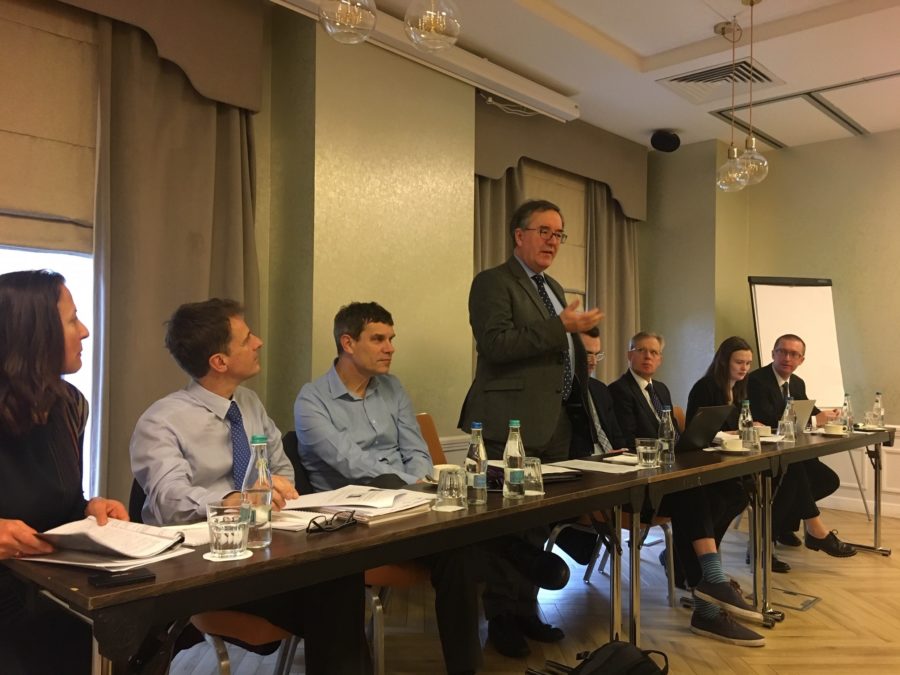Last month I attended the last in a series of round-tables events about the opportunities for UK and EU collaboration in science after Brexit. UK Embassies across Central and Eastern Europe hosted academics and policy-makers to discuss the future of UK and EU collaboration on science after we leave the EU. Through my internship at the FCO I have had the opportunity to be involved in a number of high-profile events, but was particularly interested to take part in discussions on such an important and pertinent topic. The final installation of these talks took place in Bucharest, with interesting and optimistic dialogue from both sides.
The UK was represented by HMA Andrew Noble, the FCO’s Science and Innovation Network, BEIS, the Royal Society and the British Council. The Romanian side was represented by most elite of Romanian Science, with top researchers and many influential academics from all areas of science.
Both Romania and the UK have long and extensive histories of esteemed scientific research and contribution to the global science community. The UK has Sir Isaac Newton and his important contributions to physics and mathematics, the discovery of hydrogen by Henry Cavendish, the invention of the early electric motor by Michael Faraday, the first telephone patented by Alexander Graham Bell, and the discovery of penicillin by Sir Alexander Fleming. Romanian scientists gave the world the discovery of insulin by Nicolae Constantin Paulescu, the invention of the jet engine by Henri Coanda, and also the father of cybernetics Stefan Odobleja, to simply name a few. Romania also leads the way on getting the balance right on gender equality with women being genuinely represented in science and engineering.
These scientific discoveries have undoubtedly brought benefit to the world and its citizens. It was clear to me that our scientific advances are a demonstration of our shared values and objectives, and I was pleased to see that there was a keen appetite to do more together. That is why the UK has made clear that as we leave the European Union we will continue to seek strong cooperation collaboration in science.
I have also learned that science has diplomatic advantages. The scientific community is in a valuable position to support forms of diplomacy that are not dependent on traditional alliances by providing an environment for the free exchange of ideas between people and will deliver mutual benefits to both sides, and even the world over.
For me, what really shone through from this event is the willingness and enthusiasm from both sides to ensure that scientific collaboration continues. The UK puts international collaboration at the heart of our approach to science. We know that we do the best science when we do it together.
The FCO’s Science and Innovation Network is the exemplification of this. With 110 officers in over 45 countries all working hard to facilitate bi-lateral and multi-lateral science collaboration, we have an excellent springboard with which to keep doing the best science with the EU and our partners across the world.
It remains true that, while the UK is leaving the EU, we are not leaving Europe. Our shared values and commitment to tackling global challenges demonstrates just how much we can continue to do together in the fields of medicine, robotics, climate change and many more. The science community has survived through many things. It has survived multiple wars, the rise and fall of dictatorship, economic depression and other devastating situations. As such, there is no doubt that science and UK-EU scientific collaboration will continue to persevere and prosper in the months and years to come.

